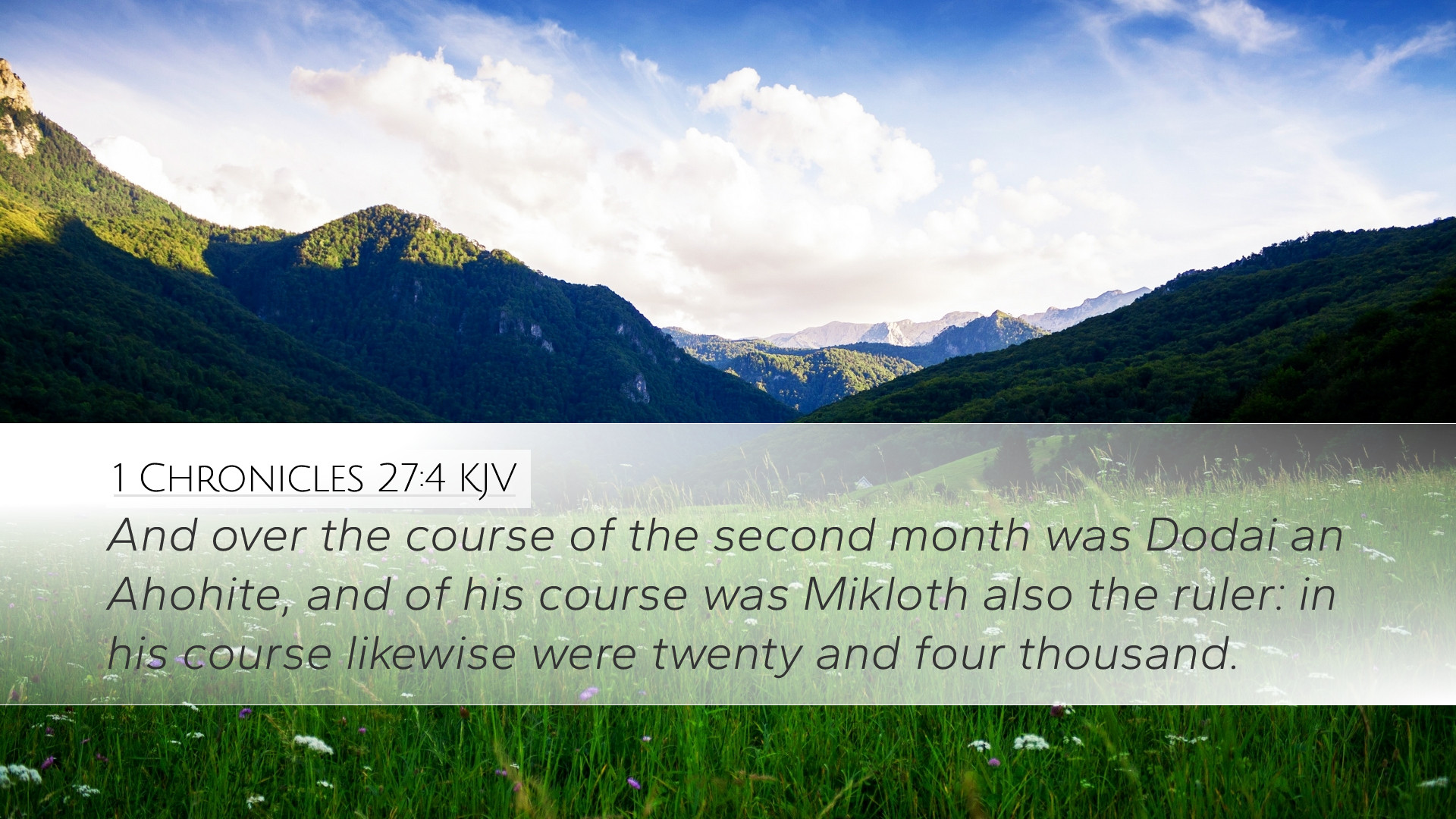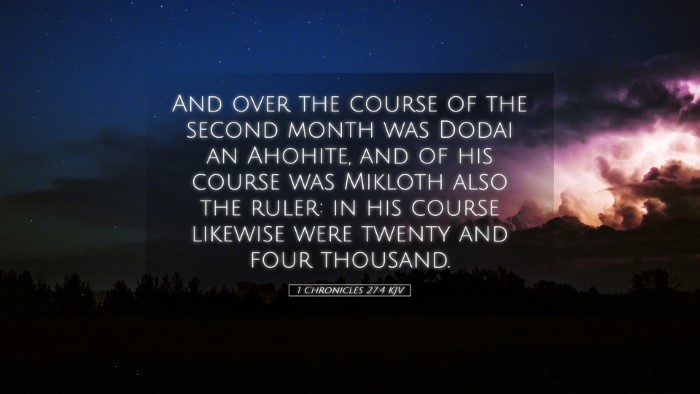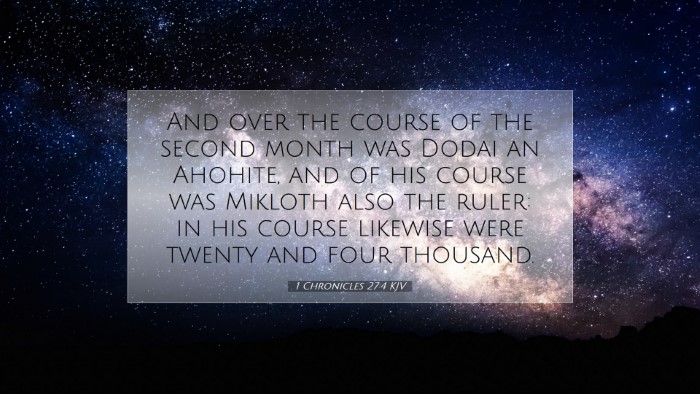Commentary on 1 Chronicles 27:4
1 Chronicles 27:4 states: “Over the course of the second month was Dodai the Ahohite, and his course consisted of 24,000”. This verse presents a segment of David’s administrative structure and military organization during his reign. Below we will explore the significance of this verse, drawing from various public domain commentaries to provide a comprehensive understanding.
Historical Context
This particular verse is situated within a passage that details David's organization of the Israelite army. Each month, a particular group would serve in a rotational service, responsible for military duties, as shown in various accounts throughout 1 Chronicles 27.
Military Organization
The idea of organized divisions in military service suggests a time of peace where the king could afford to structure the army for potential conflict, rather than for active warfare. Matthew Henry notes that this organization reflects the wisdom of David, illustrating his understanding of the necessity for preparedness and unity among the tribes.
Key Characters
Dodai the Ahohite is appointed as a leader over the second month. The designation “Ahohite” may show that he was from a family line known for military leadership, ancestry that would be respected in David’s reign. Albert Barnes highlights that each leader in this structure would receive particular honor and recognition, establishing a sense of responsibility and accountability during their appointed time.
Divine Order
The appointment of Dodai indicates a divine order in the appointments made by David. Adam Clarke comments on the peaceful nature of these assignments. God’s providence was at work, guiding David in selecting men for service who were capable and dedicated, ensuring the welfare of the nation through such structured governance.
The Numbering of Potential Warriors
The figure of 24,000 indicates a significant number of soldiers prepared under Dodai’s command. This number reflects David’s capability of gathering vast resources and showcases the strength of Israel during his reign. According to Henry, the number may also suggest the proportion of the military presence that was methodically arranged to ensure adequate defense and response.
Spiritual Implications
Beyond the historical and military significance of this verse, there are spiritual themes that can be drawn from the organization and leadership of God's people. The proper ordering of the nation under God’s leadership is an illustration of divine governance, an important concept in both the Old and New Testaments.
Patterns of Leadership
Pastors and leaders can extract modern-day implications about the importance of appointing competent leaders in the church. Just as David structured his military, church leaders today must understand the necessity of organization and orderly conduct in ministry. Barnes emphasizes that the church, like the army of Israel, should have appointed leaders who are faithful and responsible in their service to God and the community.
The Role of Accountability
Each leader was accountable for their service. This accountability is vital in any leadership role, ensuring that those leading are fulfilling their duties with faithfulness. Clarke brings out how accountability is a biblical principle that not only aids in organizational efficiency but is also a reflection of one’s commitment to God and the people one serves.
Conclusion
In summarizing the insights from these commentaries, 1 Chronicles 27:4 showcases not only David’s military acumen but also serves as a reflection of God’s providential order and the principles of leadership and accountability. For pastors, students, and scholars, the structured approach to leadership exemplified in this verse can guide the practical applications of organization and service within church communities today.
Reflective Questions
- What principles of leadership can we learn from David’s organization of the military?
- How does accountability play a role in our leadership today, and what steps can we take to ensure its effectiveness?
- In what ways can a sense of divine order inform how we structure our churches and communities?


